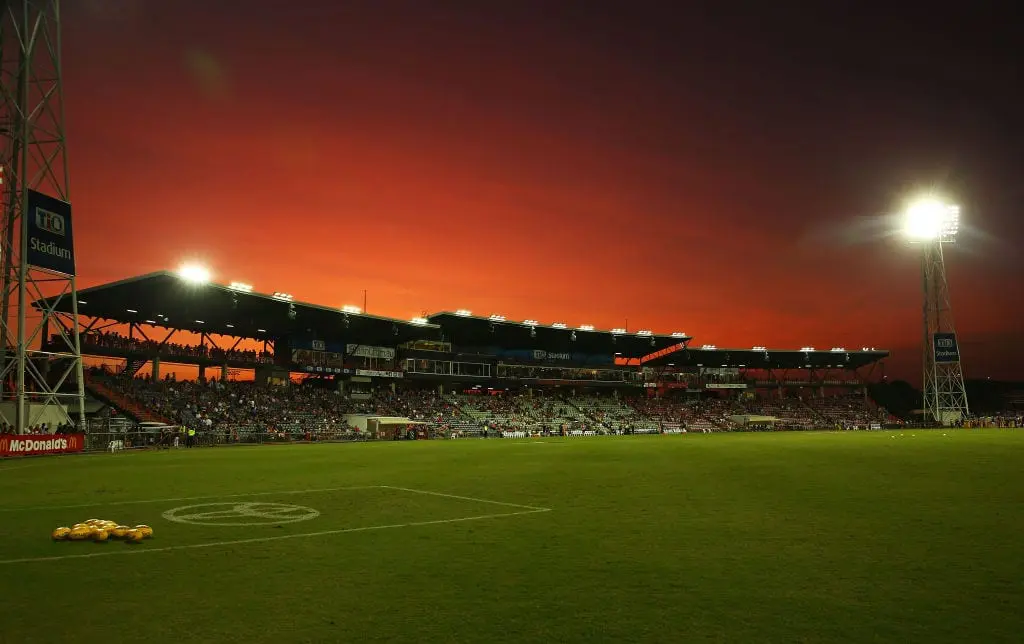Powerbrokers in the Northern Territory have begun readying themselves to enter bids for both an AFL and AFLW license once they become available.
However, given multiple economic and geographic factors, these same optimistic suits have suggested that their club's model will have to take on a different appearance to those that already reside within the country's top competition.
Following a study into the feasibility of a 20th franchise in the 'Top End' conducted by consultancy group Bastion Experience, it was found that the region's population would prove too small for a club with a traditional make-up to thrive.
But according to AFL NT chief executive Stuart Totham and Territory minister Michael Gunner, an alternative approach to construction will only suit to serve all walks from the Territory in a more positive sense.
“There is a lot of work to do,” Totham told Zach Hope of The Brisbane Times.
“But in terms of the AFL developing a legacy and a social impact, I don’t think there’s anything bigger than this one.
“And it’s there. It’s there for the taking.”

Further research conducted by Bastion suggested that although the prospective team would be able to draw in the vicinity of $30 million per annum from crowds, sponsors and memberships, they would still sit below the league's 'poorest' clubs by a margin of around $10 million each season.
Add in the estimated $5 million annual travel costs, and the Territory team would well and truly be behind the eight ball.
Still, both Gunner and Totham hold the belief that this $15 million shortfall can be erased given that billions of dollars are channeled into charities and organizations that they would also seek to aid.
With the pair's view that the club would represent Aboriginal culture in both name and appearance, there is a view that the outfit could merge their efforts with groups like 'Closing the Gap' and 'Developing the North' to work collaboratively in the community and share funding.
“Not a club with a social license tacked on, but a club built to be a social force,” Gunner suggested of a team that would likely use a moniker from one of the more than 100 languages spoken within the region.

Bastion also suggested that if a team that would represent all of the Northern Territory was given the green light, the team could produce an estimated $460 million in education programs, health benefits, lower crime rates and social togetherness.
Such is the fervor for representative, architects have already sketched up a proposed 25,000 seat stadium located in Darwin that would rival the size and the spend of the North Queensland Cowboys' $300 million stadium recently opened in Townsville.
Should this design be opted for, the new franchise would still seek to play games in other locations throughout the region in an effort not to neglect any citizens.
Funding for the state of the art venue is suggested to come from both the federal and state governments, according to Hope's report.

Although expansion plans have stalled since the injection of Greater Western Sydney in 2012, Totham stated that their bid should not be seen as one directly opposing Tasmania's tireless efforts to enter the AFL, but rather as a complimentary effort to follow.
“The AFL needs to go to 20, not 19,” Gunner says.
“We need Tassie and they need us.”
There remains a suggestion from punters, pundits and Bastion that the club will face a dearth of talent due to many acquired players likely to have issues settling into the region, but AFLNT chairman Sean Bowden suggested that these ideals are far from the truth.
“People are going to want to be involved,” he said in retort.
“They’re going to want to come up here and do more than just play AFL football – have a little more meaning, maybe, to what they’re doing.”
Bastion also believed that an inability to develop professional talent could also see the bid sink.
Despite these plans for the future, an official bid for either an AFL or AFLW license in the Northern Territory has yet to be made to AFL House following the consultant group's findings in June.
























